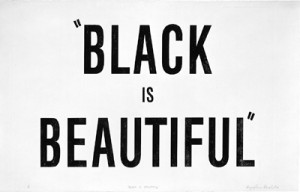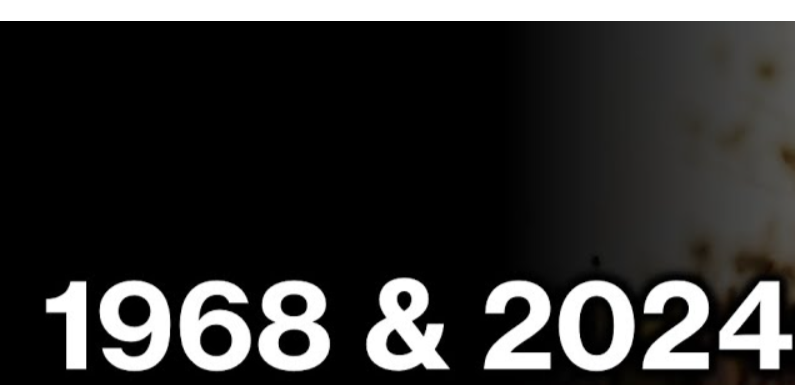(ThyBlackMan.com)
Black is Beautiful and the Lightest You, which do you choose, or do you really have to?
In the old Eddie Murphy movie, Coming to America, a young African prince comes to America to find a mate. Does he find one? Yes. She is attractive, and has a light complexion. Her sister is also attractive. However, she has dark skin and an evil personality, all in keeping with a common stereotype.
Several years later, enter Spike Lee with Mo’ Betta Blues. Denzel Washington’s character has two girlfriends. One is sincere. The other is not. The sincere one is dark. The opportunistic one is light. He settles down with the dark one. An anti-stereotype to be sure, but isn’t that still a typing bound to hurt someone nonetheless? A necessary antidote to the generations of the opposite stereotype, you say? But isn’t an antidote still a drug? How do we deal with this issue in a healthy way? Do we lean toward Black is Beautiful or do we long for the Lightest Hue? But we come in every color under the sun, so how can we choose?
The definition of a Black person is anyone with any “Black blood,” that is,  anyone with any Black ancestry at all, ranging from a little to a lot. Therefore, Black is by definition a rainbow of hues. And so people can be Black who actually look White or Asian. Therefore, a Black standard of beauty would have to be one not rooted in any color or shade at all, but one which saw beauty for beauty’s sake, irrespective of one’s hue. Is this something that we can do?
anyone with any Black ancestry at all, ranging from a little to a lot. Therefore, Black is by definition a rainbow of hues. And so people can be Black who actually look White or Asian. Therefore, a Black standard of beauty would have to be one not rooted in any color or shade at all, but one which saw beauty for beauty’s sake, irrespective of one’s hue. Is this something that we can do?
The concept of race is so ingrained, we find it hard to believe that it is of but relatively recent vintage. Not until the Atlantic slave trade began to hit high tide, did race really become a marker. Though we can read, and in some museums see, that the ancient Egyptians, Babylonians and Indians were Black, and that there were African generals, kings and prophets in Europe and Asia and the Americas too, deep down inside we just don‘t seem to believe there was a time when “the color of a man’s skin was of no more significance than the color of his eyes.”
Recall Othello, Shakespeare’s play about the Black general who led the armies of Venice. He was quite a heroic figure indeed. But he was a tragic one too, for he slew his white wife in a fit of jealous rage. Like all great literature, Othello dealt with a pressing issue of its time. In the early seventeenth century, at the dawn of the trans-Atlantic slave trade, Othello helped demonize the heretofore heroic proportions in which African culture and peoples were cast. The increasingly harsh treatment being meted out to African captives had to somehow be rationalized. Though slavery ended a century and half ago, are we not still in the shadow of that three hundred year era?
Note the religious component. The Muslim, Jewish and Christian faiths all have a common root. Muslims, however, never portray the deity, or the prophets, in any way. Likewise Jews never, I repeat never, depict any religious figure or image of God. Many Christian sects likewise follow suit. However, some Christians portray Christ as a white man and claim that he was God.
Far be it from me to even suggest how people should worship, but I will speculate on the effect on the psyche of the faithful, once the deity is represented in human form. Those that look like the image may well feel superior to those who do not, and vice versa, those who do not may feel less than those who do. Taken to the extreme this can have deadly consequences, as in Europe in the middle of the last century. But even when things do not go that far, isn’t it easy to see how this can shatter one’s self esteem? And so the solution?
Humanity had an African Genesis, and civilization first arose amongst the darker peoples of the earth. To the extent that people put down those of a darker hue, to that extent we are turning against our roots. Honor thy father and thy mother is a universal. Can anything good come to those who disown and despise those who came before? To disrespect and dishonor the image of all our ancestors in others, and in ourselves, is to forego their blessings and to court doom. Look at where the world is headed. Is this the reason why?
Recall that Black is, by definition, a rainbow of hues. We are the world. And like the world we oftentimes fail to see the great strength and advantage that lies in our diversity. The world has always imitated us, for good or for ill, and it always will. We set the tone. We make the style. And so, I suspect, that when we fully embrace our selves, and all our sisters and brothers, the world may well follow suit. Don’t you?
















Excellent article!
Thank you both. Festus, I agree that race is fiction. And I agree that “the greater responsibility should be with those that benefit and perpetuate this bio-cultural fiction that is West European in origin.” But that is prescisely why they will do nothing about ending it because they are benefitting from it! So if we wait for them to liberate us from this scourge it will never happen. “No one but us can liberate ourselves from mental slavery.”
Arthur,
“Race”, is of course a fiction this is why the “alleged” descendants of Western Europeans call themselves “Caucasian” and many descendant of East Europeans anglicize their names and claim to be “Anglo-Saxon” – you will be extremely lucky to find “Anglo-Saxons” in England or in Saxony in Germany.
The problem is the fact that the “Race” fiction serves geopolitical purposes (albeit contradictory) so the colour of the skin became decisive even amongst Africans themselves. However, it is not something “we” all contribute to since it benefits some people and condemn others. The greater responsibility should be with those that benefit and perpetuate this bio-cultural fiction that is West European in origin.
Great. This is the proper and powerful use of a site such as this.